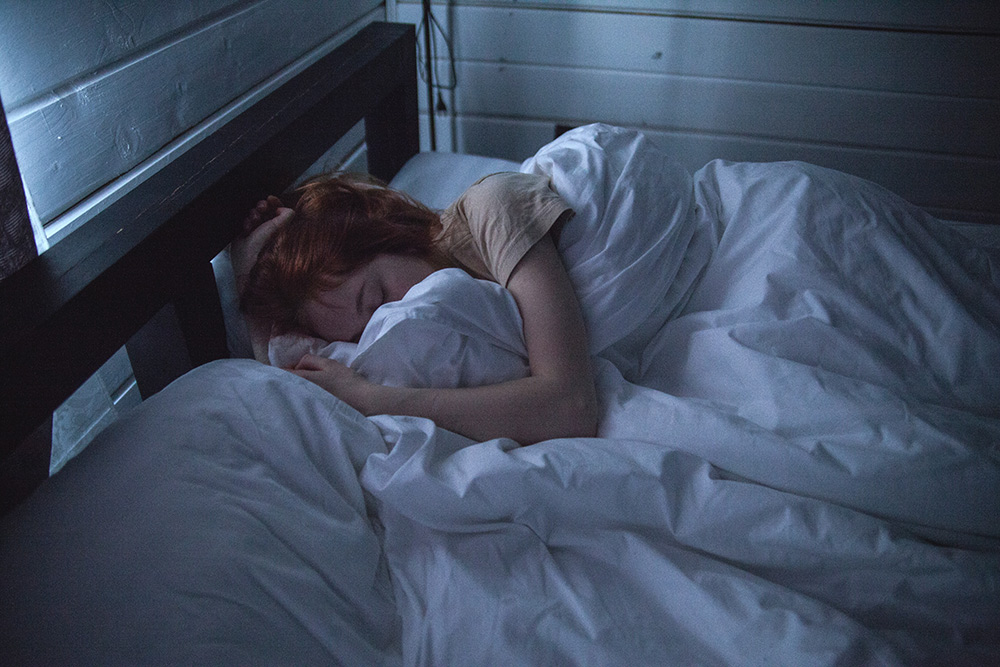In this blog post, I will discuss sleep hygiene tips that will help you sleep better and promote good sleep habits. Sleep is an important part of our lives and problems with sleep can be detrimental to our mental health. There are a lot of factors that can affect the quality of your sleep. I’ll start by discussing some things about sleep and what you can do to improve it.
When we sleep, our body is resting and restoring energy.
The sleep-wake cycle works in a way that the sleep you get during nighttime helps restore your mind and body from the day’s stressors. On average, it takes around 90 minutes for our brain to go through each stage of sleep: light sleep, deep sleep, and REM sleep.
If you’re sleep-deprived, your body will struggle to go through all of the sleep stages and you’ll likely feel tired throughout the day.
There are a lot of things that can affect our sleep—from caffeine and alcohol to stress and anxiety. To get better sleep, we need to be aware of these factors and make changes where necessary. Here are some sleep hygiene tips to get you started:
- Establish a regular sleep schedule and stick to it as much as possible. When you go to bed and get up at the same time every day, your body will adapt to this pattern. Give yourself 30 minutes to an hour at most to fall asleep.
- Do not use your bed in the daytime for things like watching TV, talking on the phone, or reading. This will help train your body to associate the bed with sleep.
- Avoid caffeine, nicotine, alcohol, heavy meals, and exercise late in the day before going to sleep. These things can all disrupt your sleep.
- Avoid working or using electronic devices 30 minutes before bedtime. The blue light from screens can interfere with your sleep patterns.
- Establish a bedtime routine and stick to it. This could include reading, winding down for 30 minutes before sleep, etc.
- Keep your bedroom cool, dark, and quiet. When prepared to sleep, turn off the light, and keep the room quiet and the temperature comfortable and relatively cool.
- Practice relaxation techniques before bedtime. Deep breathing exercises, meditation, etc. can help relax your mind and body for sleep.
- Don’t catastrophize. Remind yourself that you need rest and aim for reverie. Staying awake is not a catastrophe. Don’t give up on sleeping for the night to get up for the day.
- Sleep at least seven hours per night. This will help ensure that you’re getting the sleep your body needs.
- Limit napping during the day to 10-30 minutes. If possible, try to nap earlier in the day rather than later. Napping too close to bedtime can interfere with your sleep cycle.
If you wake up in the night and are unable to fall asleep within 30 minutes, get out of bed; go to another room and read a book or do some other activity that will not wake you up further. As you begin to get tired and/or sleepy, go back to bed.
If you’re anxious or find yourself ruminating, and if what you’re thinking about is solvable, solve it. If it’s unsolvable, go deep into the worry or “catastrophe”—the very worst outcome you can imagine—and then imagine coping ahead with the catastrophe.
This 9-0 meditation practice can also be used to promote sleep:
Breathe in deeply and breathe out slowly, saying in your mind the number 9. On the next breath out, say 8; then say 7, and so on until you breathe out saying 0.
Then start over, but this time start with 8 (instead of 9) as you breathe out, followed by 7, and so on until you reach 0. Next start with 6 as you breathe out, and so on to 0. Then start with 5, then with 4, and so on until you have gone all the way down to starting with 1.
In addition to these tips, you need to make lifestyle changes.
It’s important to address sleep issues by making changes in your lifestyle. If you are sleep-deprived, it will become a vicious cycle where sleep deprivation leads to anxiety which interferes with sleep—which can worsen both sleep and anxiety problems.
Anxiety is linked with poor sleep hygiene because the stress of anxiety can affect sleep.
People with anxiety are more likely to have sleep problems like difficulty falling asleep, restless sleep, and waking up frequently. In addition, people with anxiety often feel anxious about their sleep which can lead to even more sleep problems.
To improve your sleep hygiene and reduce your anxiety levels, address any underlying mental health issues that may be contributing to your sleep and anxiety problems.
A therapist or counselor can help you address these issues. If you’re dealing with anxiety, many treatments can help including therapy, medication/supplements, and self-help strategies. Making some small changes to your sleep hygiene can make a big difference in the quality of your sleep. By following these tips, you’ll be on your way to getting better sleep.
If you’d like to read more about sleep hygiene here is a good article in PsychCentral, which I was featured in.
If you’re experiencing problems with sleep or other anxiety-related symptoms and would like help addressing underlying mental health issues, please reach out to me for a free phone consultation.




